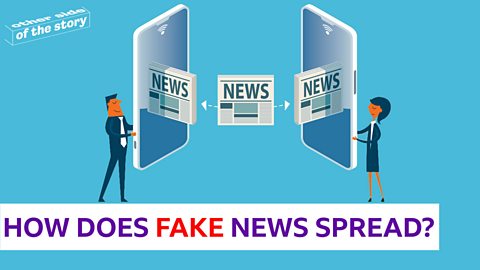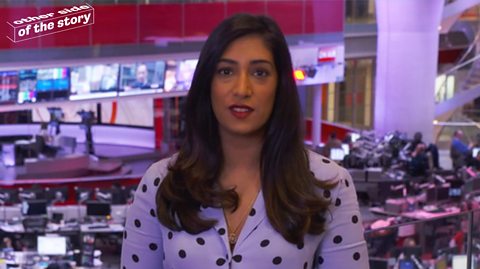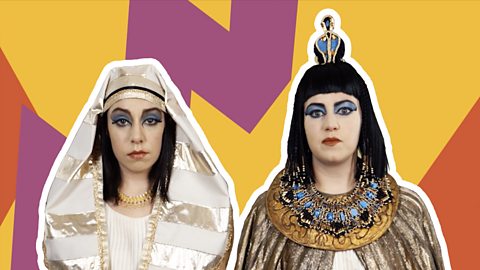We have learned about bias in media coverage – this is when specific facts are used to present a story in a particular way. However recently there has been a huge increase in something else – fake news.
What is fake news?
Fake news means news that is completely untrue – it has been made up.
Where did fake news come from?
Fake news isn’t actually new – people have been making up news for centuries.
Social media means it is easier for these stories to spread and this means it is a bigger problem for us. It is also much more difficult to stop these stories from being published because there aren’t checks on what gets put on the internet.
Student: I get most of my news on social media.
Student: Instagram
Student: Just watch it on TV.
Student: Facebook.
Student: Snapchat. Even Tiktok if you get someone rambling on about something for a minute.
Vick Hope: News. It is everywhere.
Student: Celebrity news. Political news.
Student: Sport news.
Student: Boring news.
Student: But then it’s also just anything that happens.
Student: Falling over in a funny way.
Student: A lot of fake news.
Student: Fake news, there’s a lot of that.
Student: You can’t avoid it.
Vick Hope: It’s switched on twenty four hours a day and with the mega fast rise of social media, it is constantly pumped into your feeds.
Donald Trump: It’s fake news. It’s fake. I’m telling ya, it’s just fake news.
Vick Hope: We’ve all heard the phrase “fake news”, but what does it actually mean and does it matter? Latest research shows that only two percent of young people can spot it and over 60 percent say that fake news stories make them trust all news less. If we don’t trust the news, how will we know what’s really going on?
Student: I’d say that fake news has definitely left me confused.
Student: It’s kind of like Chinese whispers, you know what I mean?
Student: Anyone can make anything and they can be totally anonymous for what they’ve created and what they’ve put out into the world.
Student: You can’t even have a proper opinion on something because you don’t know what’s real or fake.
Student: It can ruin people’s lives.
Student: It does confuse me quite a lot. When you share it then you’re spreading that as well.
Vick Hope: It doesn’t have to be like that. With a little bit of knowledge, you can be the generation that got smart about fake news. We’ll show you the different types and who’s behind it. Most of the fakes created are deliberate, now this is known as disinformation, some though are mistakes and this is called misinformation.
James Ball: Journalists get a load of training in how to find out what’s true and they have lots of checks and editors to try and make sure when they tell you something they’ve got good reason to believe it. And crucially, if a journalist does make a mistake, they say sorry and they fix it because they have to.
Vick Hope: Light hearted stories that make humour from real news and situations can sometimes be mistakenly shared as real.
Alastair Reed: Satirical website The Onion wrote an article about Kim Jong-un, the North Korean dictator, which said that he was the sexiest man in the world – and this is a joke website in the US. People in China and in North Korea didn’t realise that is was a joke and shared it, believing it was true.
Vick Hope: One of the most wide spread types of fake news is clickbait.
James Ball: We’ve all seen that sort of headline that looks great, “Hey you’re the millionth person to this site, claim your free iPad”. It’s never true and that’s a kind of fake information that can leave you really disappointed.
James Ball: There’s a trick on the internet where you’ll also see a really intriguing news story. “The Pope endorses Donald Trump”. And it’s something that makes you go, whoa, what’s that about and click. They’re giving you a story that looks sensational so that millions of people click it. And then they run loads of adverts next to them and so for each click they might get half a penny or even less than that but if you can get tens of thousands of people to click your really exciting looking headlines then you’re going to make a lot of money from them.
Vick Hope: But not all clickbait is fake news and money isn’t the only motivation for people who create it. The oldest type of fake news is propaganda. Now it’s been around for years but because of the internet, so many more of us see it these days.
Alastair Reed: Previously politicians and powerful people used propaganda to push their ideas and their politics onto the wider population and that might be through leaflets or a TV broadcast. The thing is what social media has done is to allow anybody to use those same tools and those same tactics to push their ideas onto others. It can affect the future of a whole country, if lots of people are making decisions and voting based off things that aren’t true.
Vick Hope: We all need to think about fake news and its consequences. How would you feel if someone made up a rumour about you? Think how bad you’d feel if someone important lied to you and you only found out later that it wasn’t true. Why not pause before you share and think if what you’re sharing is fact or fake.
There are two main types of fake news:
- Disinformation – this is fake or misleading stories created and shared deliberately, often by a writer who might have a financial or political motive, e.g. propaganda. These stories were published even though the person publishing them knew they were false.
- Misinformation – this also includes fake or misleading stories, but in this case the stories may not have been deliberately created or shared with the intention to mislead. Sometimes stories are published where the facts haven’t been checked properly or some of the story might be true but other bits may have been exaggerated.
Where next?
How does fake news spread?
Vick Hope finds out how fake news plays on our emotions and why we should pause before we share.

Think like a journalist: How to check a story
±«Óătv journalist Tina Daheley explains how she checks the facts when reporting on the latest news.

Flo and Joan from Horrible Histories tell the story of fake news through the ages.

Fact or Fake?
Find out how to spot and stop fake news with ±«Óătv Bitesize.
